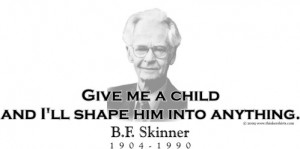Near the end of Maslow’s life, he began to think about a new kind of psychology that goes beyond personal experience and includes a fourth force which would be the spiritual aspects of human nature. He believed that humanistic and third-force psychology were a preparation for this acclaimed fourth force. It continues to address human needs and identity, but it goes beyond those things. He suggested that this would offer a tangible and effective satisfaction of the frustration that many desperate people have. This gives promise of life and value, instead of confusion and worthlessness.
This perfectly fits with the idea of redemption! Because of the blood we are sons and daughters of God. How can we worry about who we are, what others think, and our needs if we come to a grasp on the idea that salvation doesn’t just mean we are going to heaven, but it means that heaven is coming into us through a relationship with the holy spirit?!? There can be no doubt, hopelessness, or fear because the devil has already lost. We have been clothed by the father in purity and that brings us back to the identity of who we were created to be from the beginning, before the fall. If we focus on our true identity, sons and daughters that already please God because of his grace, we deny ourselves and everything God has we receive because we are his and ALREADY seated in the throne room of grace. We have his mind because of the holy spirit. My goodness, there cannot be doubt or fear in a Christian who knows their true identity. We weren’t called to believe in God and then live in hell until we get to heaven. We were called to die to ourselves, take up our cross and follow him while letting heaven manifest through us because of our relationship with the holy spirit!! People need to know how amazing they are because everyone was created in the image of God and everyone was washed by the blood. Maslow is right! People are broken, confused, lost, seeking their true identity, and the fourth factor of psychology brings freedom! The truth sets us free and gives us life and value; just like Maslow said, just like Jesus said. Jesus is the way, the truth, the life, whosoever believes in him will not perish but have eternal life. Deny yourself, learn your identity, and receive the father’s love. Seriously, almost every Christian has a problem with themselves. Once we start believing that the cross is enough this world is going to change!


